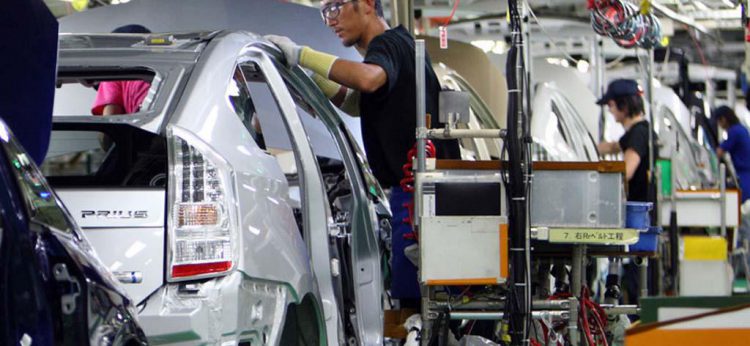South Korea says it’s building the world’s largest test site for self-driving cars
Now that we have self-driving cars, the next big challenge is figuring out where to test them. Most experts agree that the best places to do that are giant, government-run, fenced-off fake cities that mimic all the real conditions of the road. To that end, South Korea’s government is building an 88-acre site that it claims will be the largest test bed for autonomous driving in the world.
The news, which was very first reported by Business Korea and later picked up by Mashable, highlights South Korea’s growing interest in positioning itself as a leader in self-driving cars. The site will be used by South Korean companies like SK Telecom, Naver, and Samsung, as well as automakers like Hyundai and Kia, according to Business Korea. This comes after Samsung, the No. One smartphone manufacturer in the world, recently received approval to test self-driving cars on public roads in the country.
According to the Ministry of Land, Infrastructure & Transport of South Korea, the K-City is presently under construction based on the intelligent transportation system of the Korea Transportation Safety Authority. The facility with an area of approximately 360,000 square meters is scheduled to be tooled with bus-only lanes, expressways, zones for autonomous parking and so on. A budget of approximately eleven billion won [$9.7 million] is planned to be invested in it.
At eighty eight acres, K-City is over twice the size of MCity, the vehicle testing site in Ann Arbor, Michigan, used by a diversity of automakers and technology companies. But when it opens in 2018, K-City’s run as world’s largest test bed for self-driving cars may be brief. Last year, the US Department of Transportation broke ground on the fresh American Center for Mobility at the historic 335-acre Willow Run site in Ypsilanti, Michigan, where B-24 bombers were built during WWII.
Still, K-City will ensure South Korea remains a hotbed of autonomous vehicle activity for years to come. Hyundai, the nation’s top automaker, has been pitching its self-driving, all-electric Ioniq as the autonomous vehicle that you may actually own. The Korean automaker claims that because it’s using cheaper sensors and less computing power, the Ioniq will be the one true affordable driverless car — which is certainly interesting considering most experts say that autonomous cars will mostly be for collective, mobility on-demand services, and not private ownership.
South Korea says it’s building the world’s largest test site for self-driving cars – The Edge
South Korea says it’s building the world’s largest test site for self-driving cars
Now that we have self-driving cars, the next big challenge is figuring out where to test them. Most experts agree that the best places to do that are giant, government-run, fenced-off fake cities that mimic all the real conditions of the road. To that end, South Korea’s government is building an 88-acre site that it claims will be the largest test bed for autonomous driving in the world.
The news, which was very first reported by Business Korea and later picked up by Mashable, highlights South Korea’s growing interest in positioning itself as a leader in self-driving cars. The site will be used by South Korean companies like SK Telecom, Naver, and Samsung, as well as automakers like Hyundai and Kia, according to Business Korea. This comes after Samsung, the No. One smartphone manufacturer in the world, recently received approval to test self-driving cars on public roads in the country.
According to the Ministry of Land, Infrastructure & Transport of South Korea, the K-City is presently under construction based on the intelligent transportation system of the Korea Transportation Safety Authority. The facility with an area of approximately 360,000 square meters is scheduled to be tooled with bus-only lanes, expressways, zones for autonomous parking and so on. A budget of approximately eleven billion won [$9.7 million] is planned to be invested in it.
At eighty eight acres, K-City is over twice the size of MCity, the vehicle testing site in Ann Arbor, Michigan, used by a diversity of automakers and technology companies. But when it opens in 2018, K-City’s run as world’s largest test bed for self-driving cars may be brief. Last year, the US Department of Transportation broke ground on the fresh American Center for Mobility at the historic 335-acre Willow Run site in Ypsilanti, Michigan, where B-24 bombers were built during WWII.
Still, K-City will ensure South Korea remains a hotbed of autonomous vehicle activity for years to come. Hyundai, the nation’s top automaker, has been pitching its self-driving, all-electric Ioniq as the autonomous vehicle that you may actually own. The Korean automaker claims that because it’s using cheaper sensors and less computing power, the Ioniq will be the one true affordable driverless car — which is certainly interesting considering most experts say that autonomous cars will mostly be for collective, mobility on-demand services, and not individual ownership.
